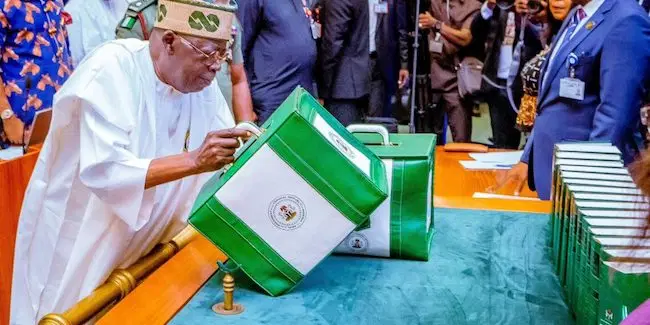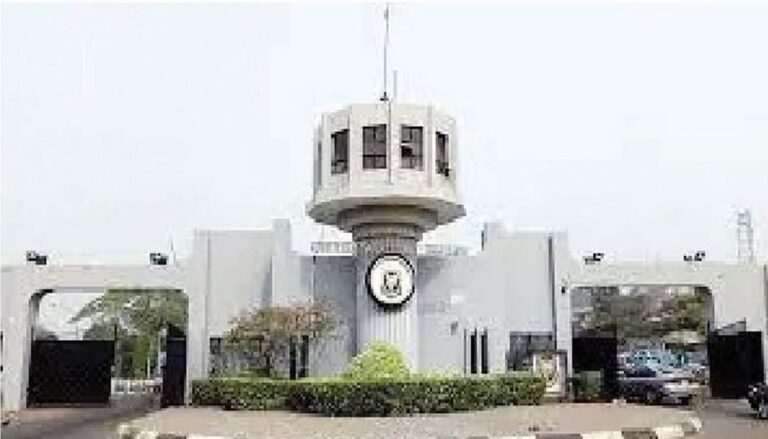
ABUJA — The Federal Government is extending the life span of its 2024 budget by another six months, a development which has consolidated on its culture of running multiple budgets in a single fiscal year.
The development also indicates that the efforts of the House of Representatives since 2024 to curb this practice may have failed.
Yesterday, the Senate began the legislative process of extending the implementation timeline for the capital component of the 2024 national budget of N13.1 trillion, this time until December 31, 2025.
The Senate resolved to mandate the Committees on Appropriations and Finance to conduct a joint investigation into delays in capital fund releases and overall budget performance. The committees are expected to report back within one week.
This particular extension is the second time for just the 2024 budget, having been earlier extended to June 2025.
Meanwhile, under the current government, the budget recorded extensions every year, having extended the 2022 budget at the onset of the regime in 2023, while the 2023 budget was already half way in implementation.
The two budgets also ran along with a supplementary budget simultaneously in 2023.
The 2023 budget was also extended into the end of 2024 while the 2024 budget was running.
Apparently uncomfortable with the situation, the House of Representatives, late last year, introduced two bills aimed at addressing budget presentation and implementation delays by the President and governors.
They also sought to limit the number of supplementary budgets passed annually to bridge funding gaps.
The bills were under review by the House Ad-hoc Committee on Constitution Review, chaired by Deputy Speaker, Benjamin Kalu.
But with yesterday’s development at the upper legislative chamber, the move by the lower chamber may have suffered a set back.
The resolution of the Senate yesterday was sequel to a bill for an Act to Amend the 2024 Appropriation Act to further extend the capital components of the Act from June, 30, 2025 to December 31, 2025 and for other related matters, 2025 (SB. 854).
It was sponsored by the Chairman, Senate Committee on Appropriations, Senator Olamilekan Adeola.
The bill came yesterday as first reading and for it to go for second reading and also to be read the third time and passed, the Senate leader, Senator Opeyemi Bamidele, came under rule 78( 1), moved to suspend the Senate rules and was seconded by the Senate Minority Leader, Senator Abba Moro.
After it was read the first time in the Senate, the bill passed second reading and was referred to the Committee on Supply for further consideration which reviewed and returned it for swift passage, an indication of urgency and political will behind the move.
Deputy Senate President, Senator Jibrin Barau, who presided yesterday, announced the resolution, following adoption of the report by the Senate Committee on Supply.
It was supported by a majority of senators after President Bola Tinubu formally requested the extension to allow for fuller execution of capital projects approved under the 2024 appropriation.
Why extension is needed —Sen Adeola
In his lead debate on the general principles of the bill, Senator Adeola, who recalled that the 2024 Appropriation Act was extended on Wednesday, December 18 2024 to June 30, 2025, which expires next week, said: “Therefore, the need for this new extension is to allow full implementation of the budget, so ministries, departments and agencies, MDAs, could utilise effectively a large proportion of funds released to them.
“There is need for further extension for the funds to be fully and judiciously expended.”
Adeola noted that given the critical importance of some key projects nearing completion, the extension of the expiration clause was expedient to avoid compounding the problem of abandoned projects.
He said: “This bill, therefore, provides for the extension of the capital components of 2024 Appropriation Act from June 30, 2025 to Dec. 31, 2025.
“We must not allow these important national projects to be abandoned due to time constraints. Extending the implementation period will ensure value for money and improved service delivery.’’ He pointed out that the government was still struggling with limited fiscal space.
Shifting the implementation timeline to December last year, President Tinubu had cited the need to complete ongoing projects and optimise budget utilisation as the rationale.
With this latest extension, capital implementation under the 2024 budget will now stretch across nearly two full fiscal years, even though the 2025 budget is already being implemented.
The development underscores persistent structural challenges in Nigeria’s budget implementation process, including delays in fund releases, weak procurement planning, and overstretched capital commitments relative to available revenues.
Some Senators express concern
Soon after Adeola read the lead debate of the bill, some senators took a swipe at the executive on project delivery.
First to react was former Senate Leader, Senator Yahaya Abdullahi, who noted that the country is financially bleeding and that the 2025 budget had not even started, urging all to forget it.
Senator Abdullahi expressed deep concern over the implications for fiscal credibility, warning that such repeated extensions could undermine public confidence in the budget process.
He said: “The credibility of this government is going down. There has never been a time in the history of the National Assembly when the appropriation bill is extended twice in one cycle. The executive arm of government needs to explain to Nigerians what’s happening,
“People have committed their resources, conducted government work, did everything but up till now, their payments have been stalled. So I think we need to know what is really happening. Some people are saying there is a cash flow problem or whatever.
“Mr President, I think the leadership of the National Assembly should take it up with itself to meet the President and express our concern about what is happening regarding the implementation of the budget.”
Also, Senator Abdul Ningi said: “What we ought to hear from the Committee Chairman of Appropriation is whether or not we are experiencing a shortage of revenue, whether or not there is no money in this country to pay off these implemented projects.”
On his part, Senator Seriake Dickson, a member of the Committee on Appropriation, lamented the complete release of recurrent component of the budget, primarily benefiting civil servants, while capital projects that directly affect citizens remain underfunded or stalled.
He said: “It is clear that no one in this chamber is opposed to an extension if it has become necessary. This is so that the machinery of the government continues to run and does not grind to a halt.
“But clearly, nobody is satisfied about the situation that we have found ourselves .”
Dickson, who also referred to widespread complaints from contractors and state-level project beneficiaries, criticised what he described as growing political distractions, including preparations for the 2027 elections and party defections, as factors that might be diverting attention from governance and project delivery’.
“Maybe there is too much preoccupation with politics and 2027, too much concentration on receiving defectors across the country,” he quipped, amid murmurs from the chamber.
On his part, the Senate Minority Leader, Abba Moro, reluctantly gave his support, citing concerns about the potential fallout for contractors already engaged in executing projects.
He said: “Even those who want to commit to the projects will be unwilling because of the fear that they will not be paid.”
Moro called for more transparency from the ministry of finance and an overhaul of the payment process to ensure timely fund releases.
“I do not envy the Chairman of the Appropriations Committee under the current circumstances. We must take the bull by the horns regarding budget appropriation.
“Unless we engage the Ministry of Finance seriously, this parliament risks becoming an embarrassment.”
Reps position
In the House of Representatives, after the speaker, Tajudeen Abbas, announced an extension of the budget implementation, the deputy spokesperson, Philip Agbese and the deputy chairman, Committee on National Planning and Economic Development, Clement Jimbo, described the extension as a necessary move to ensure the full execution of critical capital projects and avoid economic setbacks.
The lawmakers also downplayed concerns over any rift between the legislature and the executive, following President Tinubu’s refusal to assent to the National Assembly Library Trust Fund Bill.
Speaking with Vanguard in separate interviews yesterday, Jimbo explained that the extension of the 2024 budget was prompted by revenue shortfalls and the need to avert project abandonment.
“If we understand the process of budget making, it’s clear that the budget is simply an estimate. If the executive realises that the projected revenue within the fiscal year will not be realised, it can seek the National Assembly’s consent to extend the implementation timeline to raise more funds.”
He noted that the 2024 budget had a significantly higher capital component, many of which had already moved past procurement stages.
“Some contractors have been mobilised to site, and if payments are delayed due to funding constraints, it could lead to litigation and project abandonment,” he warned.
Jimbo also linked the revenue gap to global and domestic economic factors, saying “the 2025 budget is based on assumptions such as crude oil at $75 per barrel and production of 1.75 million barrels per day.
‘’But oil prices now average $64 and production is around 1.6 million barrels per day. That deficit affects revenue generation and implementation.’’
Asked whether the overlapping implementation of two budgets, 2024 and 2025, could have negative economic implications, Jimbo dismissed such concerns.
He said: “There is no immediate cost to the nation. Civil servants won’t be paid extra for this, and the 2025 projects may simply extend into 2026. It’s an adjustment in the interest of the nation.’’
Similarly, the deputy spokesperson of the House, Philip Agbese, said the extension is a pragmatic step to ensure continuity of critical projects that were not captured in the 2025 budget due to long delivery timelines.
“In line with Mr. President’s wisdom, which the Parliament has aligned with, we passed the bill at second reading to ensure these projects are completed. There’s nothing wrong with that,” Agbese stated.
While noting that the extension would enhance accountability and transparency, the lawmaker said: “What we’ve done as a Parliament is to give the needed legal boost for the budget to be fully implemented. That is in the interest of the citizens.”
He also dismissed the notion that running the 2024 and 2025 budgets concurrently would hurt the economy.
“Technically, it has no economic implication. If there was, Mr. President’s economic team would have flagged it,” he said.
Experts react
Reacting to the budget extension yesterday, Muda Yusuf, Director General, Center for Promotion of Private Enterprise, CPPE, said: “Historically, capital budget performance has always been grossly sub-optimal. This trend is apparently yet to be reversed.
“A number of factors could be responsible. First is possible collapse of the underlying revenue assumptions. Oil revenue performance in 2024 was far below target. This could be as a result of the forward sales of crude oil as well as the failure to achieve the oil output assumption of about two million barrels per day.
‘’There is also the possibility that the budget itself was ambitious. Debt service obligations are taking a huge toll on the fiscal space. Rolling over of capital budget implementation appears to have become a new normal.
‘’It’s perhaps time to reform the budget process to make our budgets more realistic. Capital projects should be strictly aligned with the realistic capacity to fund them.’’
On his part, Tunde Abidoye, Head of Equity Research, FBNQuest Merchant Bank, said:
‘’Honestly, I think extensions such as this highlight key issues in the budget implementation process, including weak execution of the capital budget, administrative bottlenecks, and the often over-ambitious capital budgets vis-a-vis actual spending capacity.
‘’However, on a positive note, the move will ensure that ongoing capital projects benefit from adequate funding.’’
VANGUARD.




